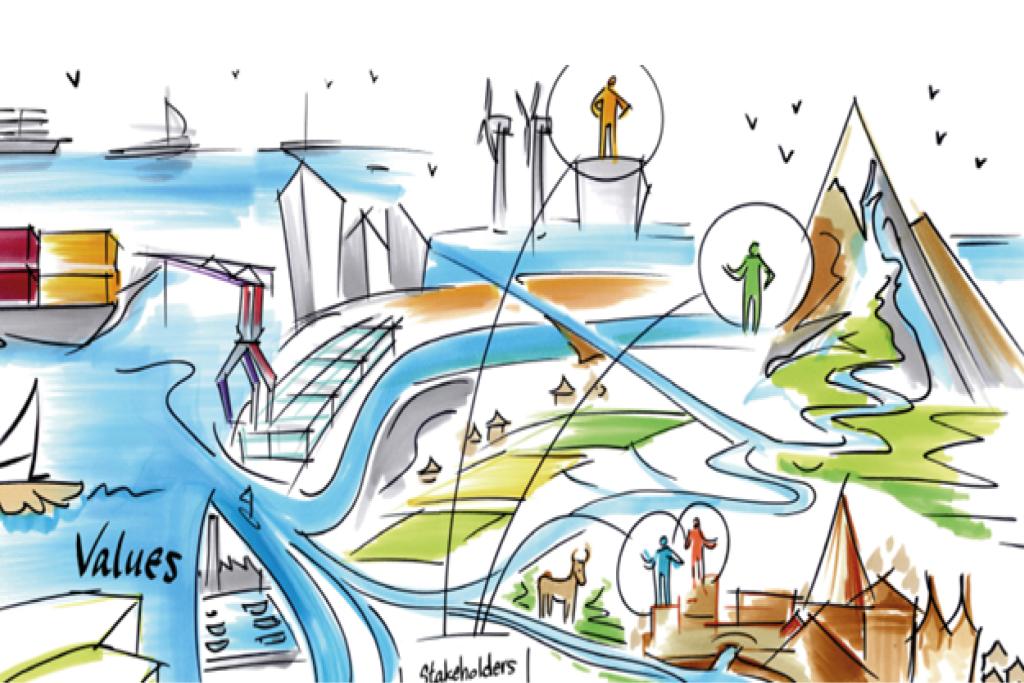A 3-day workshop featuring field trips to Rotterdam and Scheveningen, designed
for urban planners, architects, municipal officials, port managers, policymakers,
and cultural practitioners seeking an innovative and unique approach to the
development of port cities.
Port city territories offer a unique intersection of urban development, diverse communities, and waterfront
environments, with characteristics unmatched by other cities. With deep connections between water, heritage,
infrastructure, and port residents, these cities present both exceptional opportunities for growth and significant
challenges. And to achieve this, they need a solid vision!
Their unique attributes are often overlooked today, resulting in innovation and development that neglect
their rich heritage. Consequently, this diminishes the city’s distinct identity and the likely gains for citizens,
businesses, institutions, and the environment. In particular, it leads to missed opportunities for developing
human capital and fostering social cohesion.
This 3-day workshop will help you explore a key topic: How can port cities harness their unique characteristics
and heritage to develop sustainable urban spaces and foster engaged communities? And at the same time, how
can they preserve the essential needs of port-related flows?
Workshop plan
This three-day workshop at TU Delft Campus The Hague, featuring field trips to Rotterdam and Scheveningen, provides practical tools related to a value-based approach (including stakeholder mapping, value timelines, spatial analysis) to help you create a vision for port city territories. This dynamic and highly interactive workshop incorporates team-based exercises, brainstorming sessions, discussions, and other engaging training techniques. It offers fresh perspectives, even for those with extensive experience in port and water management, challenging conventional approaches while fostering new ways of thinking.
Day 1 introduces key terms and concepts related to port city territories, exploring new methods and tools through in-person presentations on harnessing value across stakeholders. The day also includes a field trip to Rotterdam, offering a hands-on workshop that delves into the challenges and potentials of port city territories. The day concludes with a dinner.
Day 2 focuses on the use of toolboxes to address multi-stakeholder dynamics to find a shared vision.
Workshops, led by professionals, will engage participants in their chosen case studies. A field trip to Scheveningen will provide an opportunity to interact with local stakeholders and gain insights into their perspectives on the port’s agenda.
Day 3 will take place on campus, where participants will synthesize key insights from the previous days by mapping their findings onto a timeline that connects past learnings to future strategies. Each participant will transform their vision into a concrete, actionable mission, with the option to develop a custom impact assessment for ongoing evaluation. This day marks the conclusion of the workshop and the transition to World Port Days in Rotterdam (5-7 September) for those who wish to prolong their stay.
Workshop fee: €1250. The fee includes lunch, field trips transportation, and a group dinner at the end of the first day.
Location: TU Delft, Campus The Hague, Bezuidenhoutseweg 63.
Lead instructor
Carola Hein is Full Professor and Chair, History of Architecture and Urban Planning at Delft University of Technology. Her research interests include the transmission of architectural and urban ideas, focusing specifically on port cities and the global architecture of oil. She leads the PortCityFutures research program that focuses on evolving socio-spatial conditions, use and design of port city regions, in particular exploring areas where port and city activities occur simultaneously and sometimes conflict

